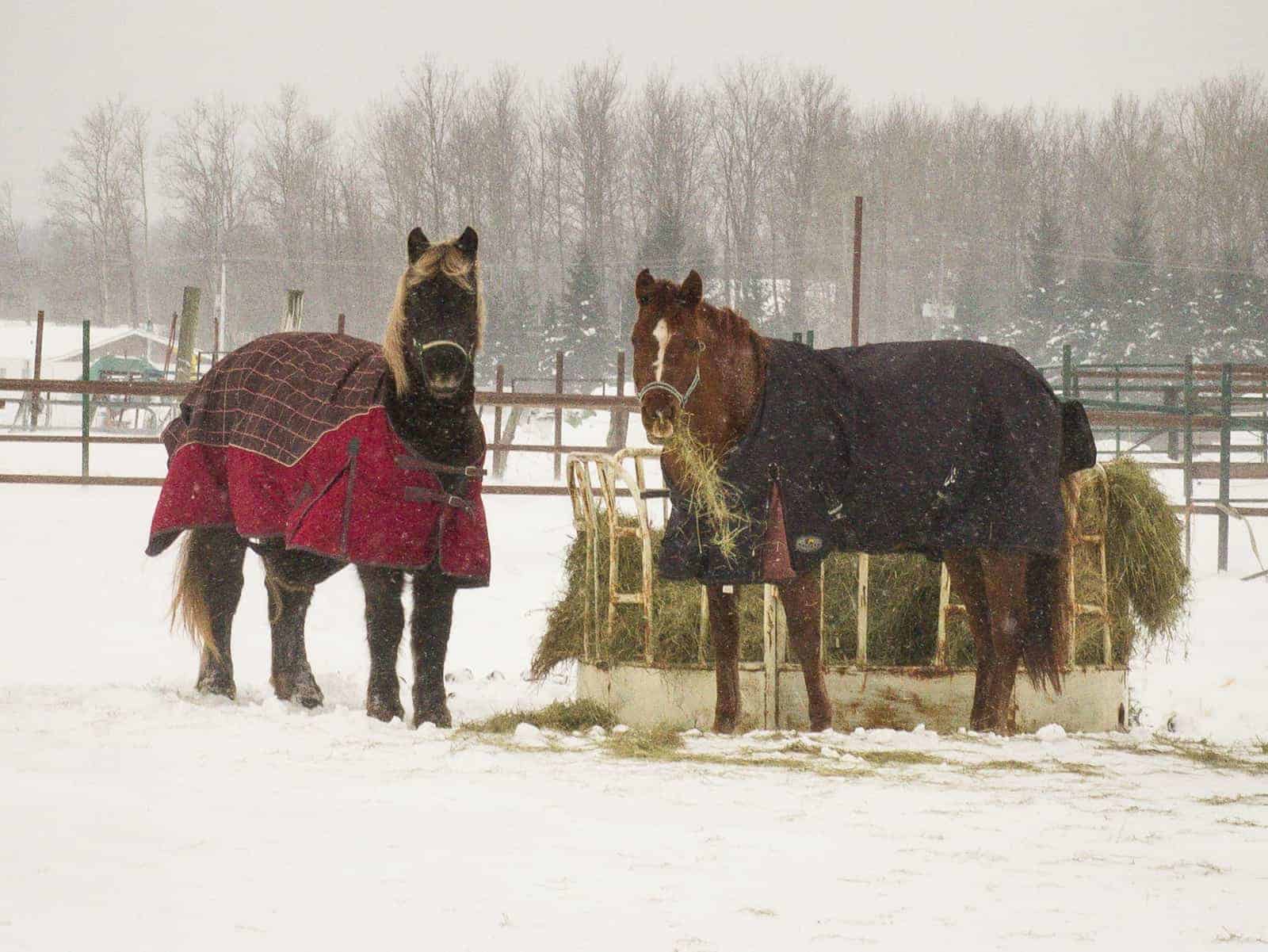
Muscle contractions dont just occur though as a result of the horse physically changing locations they also occur as a result of shivering. A horse will not die because it wasnt wearing a blanket but in order to survive cold and wet and wind it will burn calories and if there isnt enough food around to replace those calories the horse eventually will perish.

Consider adding a high fat high protein pelleted feed or sweet feed mix to your horses diet to help them cope.
Can horses survive in cold weather. Horses and other livestock can thrive in cold weather. – Seeing horses and other livestock outdoors during frigid winter weather may trigger concerns from the public about the welfare of these animals. During the winter most barn horses are covered in hoods and waterproof blankets.
Although these horses are pampered to say the least their additional human-made insulation is much needed during cold winter days. Still some horse breeds were developed in winter climates allowing them to not just survive cold weather but thrive in it. Horses survive in the wild without blankets.
A horse will not die because it wasnt wearing a blanket but in order to survive cold and wet and wind it will burn calories and if there isnt enough food around to replace those calories the horse eventually will perish. Surviving Extreme Cold - Humans and Horses. The cold horse will be seen shivering much more frequently or when all the other horses are not.
Wet cold weather is harder on horses than dry cold and a rainy 35-degree day will cause a lot more shivering than any other weather condition. Horses really appreciate some sort of shelter on those wet days so they can dry off a bit and get warm. Findings from several research studies suggest horses are actually less active when the weather is cold and wet.
Horses are built to thrive in cold weather. Their legs have almost no soft tissue that requires blood circulation so the bulk of their blood stays toasty warm in their body. The process of digesting their primary food forage creates heat through the same bacterial process as a compost pile and they can.
Cold temperatures alone dont generally make horses uncomfortable but wind and moisture can be difficult for them to tolerate so they must be able to escape the elements. The best solution is a structural shelter that is big enough to allow all of the horses in that field to safely get out of the weather. Horses need more fuel to keep warm in extremely cold situations.
Consider adding a high fat high protein pelleted feed or sweet feed mix to your horses diet to help them cope. Horses exposed to constant chronic cold weather acclimatise to the cold. Typically horses require 10 21 days to adapt to cold.
For example a horse kept at 20C and exposed to temperatures of 5C will adapt to temperatures of 5C over 10 to 21 days. When I lived in northern MN the temps would often get to -30 to -40 with wind chills of -60 or so. Ive had Quarter Horses Arabians Thoroughbreds Icelandic Appaloosas and Tennessee Walkers.
My friends had Morgans Missouri Fox Trotters Belgia. Yes they do but not all of them. A horse will not die because it wasnt wearing a blanket but in order to survive cold and wet and wind it will burn calories and if there isnt enough food.
Another breed that withstands cold winters is one you might not have heard of. The Yakutian horse also called the Yakut horse. They are a rare horse native to Siberia.
These horses are unlike any other equine in the world. They withstand -70 degree temperatures without freezing to. Horses may become dehydrated even in the cold weather if the water is frozen most of the time.
The horse will not consume enough snow to meet its water requirement. 2 If you are going to blanket the horse make sure that the blanket is intended for a horse living outside. This may be one reason why horses seem to run around more when the weather is cold.
Muscle contractions dont just occur though as a result of the horse physically changing locations they also occur as a result of shivering. The energy produced from these muscle activities raises the horses core temperature. Horses however can survive even in bitter cold.
Their winter coats if intact will provide them plenty of comfort. Hauling horses during cold weather is a greater challenge. Unable to move about horses will need ventilation.
But you must balance that by keeping temperatures level so the horses will neither sweat nor freeze.